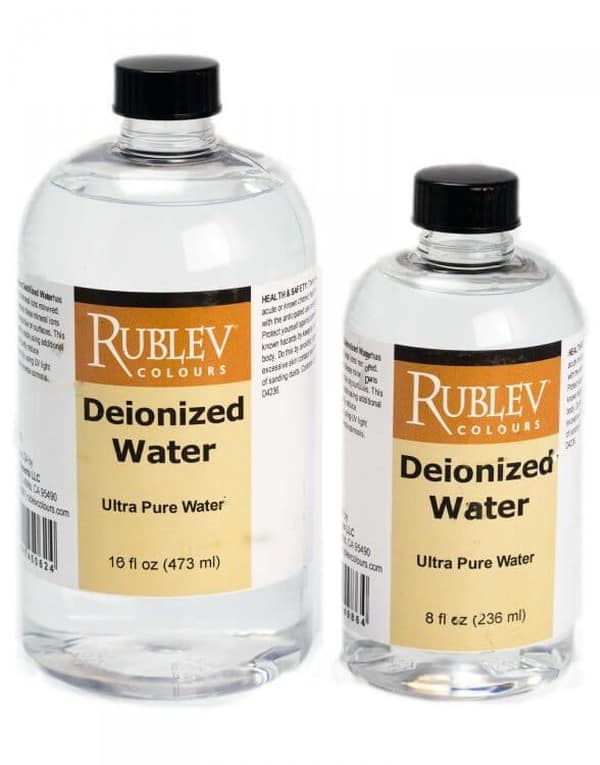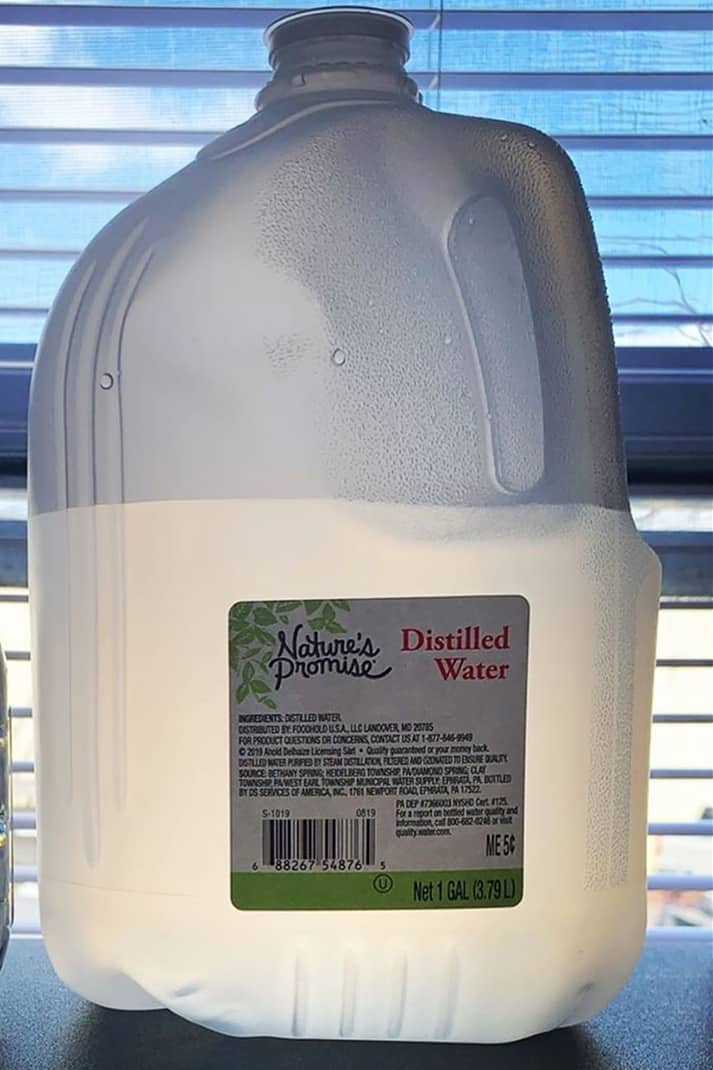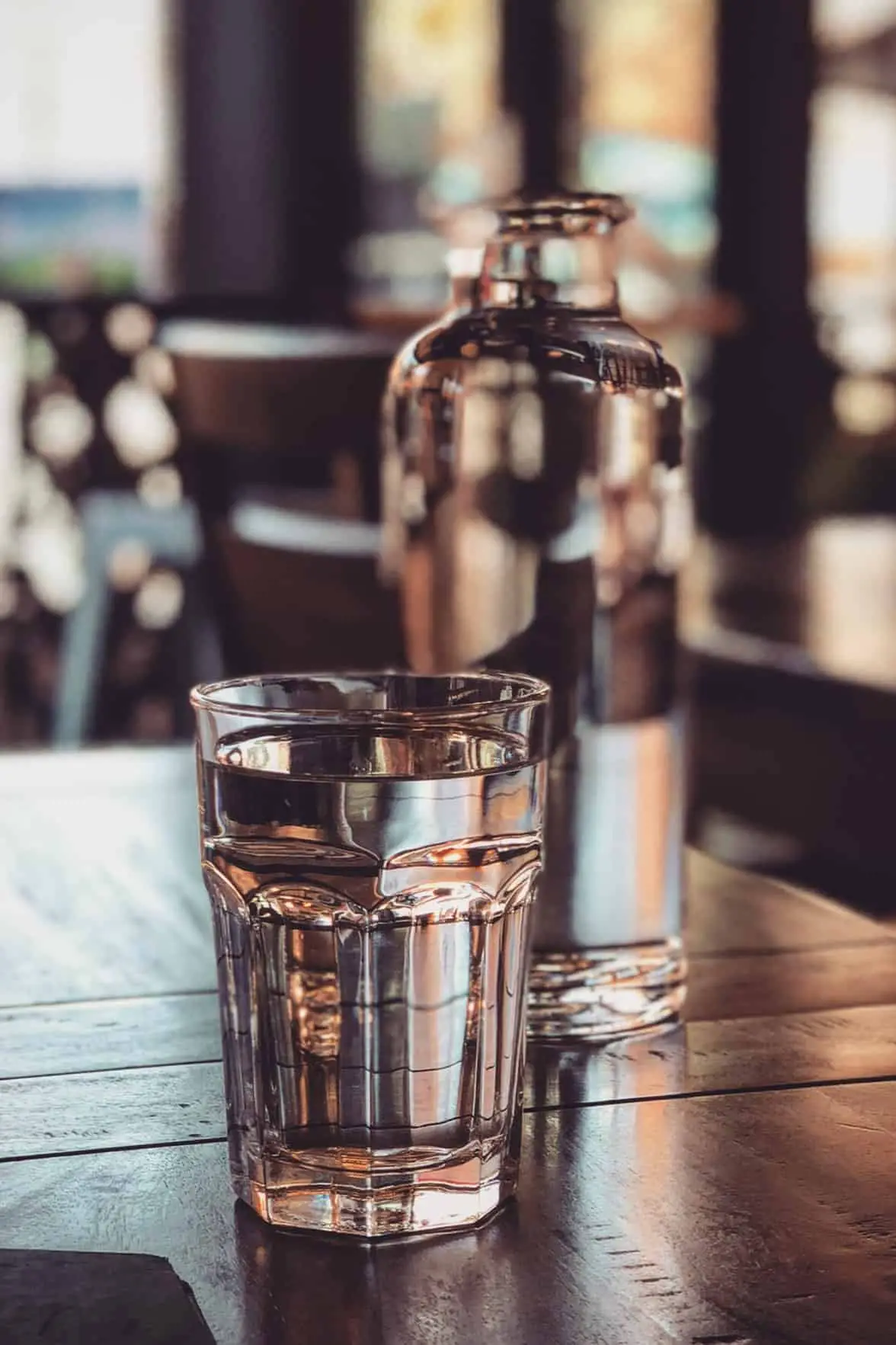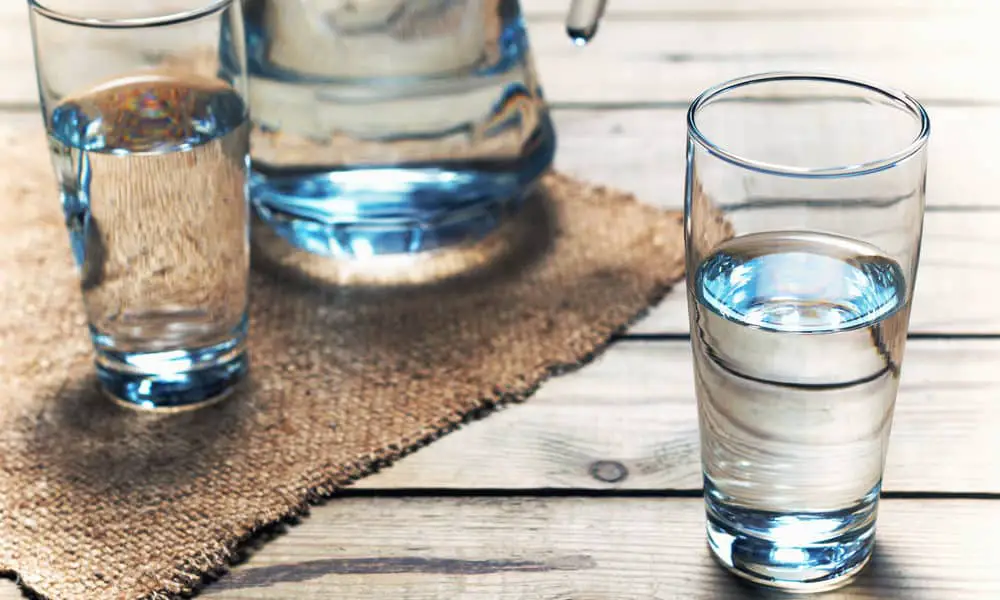Have you ever wondered what the difference is between distilled vs. deionized water? You may be wondering if there even is a difference. I am here to assure you there are some significant differences (and some similarities) between both water types.
If you are someone who cares about the water you put into your body, use for cooking, maintaining your car, or even using in laboratory experiments and settings, then this is an article for you.
In this article, I will explain what distilled and deionized waters are. I will also go over the differences and commonalities between both. I will finish by answering the question if either water types are safe to drink.
By the end of this article, you should have a good grasp on what type of water works best for specific applications.
What is Distilled Water?
Distilled water is one of the most common types of purified water. It is created from a process of distillation that removes both salts and particles from tap water.
As the water boils, it creates steam. When steam condenses and returns to its normal water state, any mineral residue is left behind. Without the mineral residue, the condensed water is considered distilled.
While distilled water is excellent for cooking, shampooing your hair, or even filling the water chamber of a CPAP machine, it is not ideal for drinking. The process of distillation removes all the helpful minerals such as calcium and magnesium that naturally occur in tap water.
Storing distilled water in the right type of container is essential if it will not be used immediately. With its lack of nutrients, distilled water tends to pull minerals from whatever it comes into contact with, like plastic from a plastic bottle.
Although it is not the ideal drinking water, distilled water and its lack of minerals is also useful in devices where mineral build-up would cause damage; some examples of use are lead-acid batteries and automotive cooling systems.
What is Deionized Water?

Deionized water is a pure type of water that has gone through a process to remove all ions or mineral salts. This process ensures that the water has no impurities and is instead capable of taking on the properties of any product it is added to.
It is created by taking tap water and exposing it to electrically charged resins. Once the resins are exposed, they attract and bind salts that can then be removed. Without ions, deionized water does not conduct electricity.
Without the conduction of power, it makes it the perfect pure water to use in cleaning electrical devices and in other applications where high water purity is needed.
Generally purchased through a retail supplier, deionized water is not considered safe to drink. With its mineral salts taken out, deionized water by itself is corrosive and can cause damage to both tooth enamel and soft tissue.
It is most often used in glass manufacturing, biotech, and pharmaceutical industries and in laboratory applications where bacteria-free water is essential in conducting experiments or disinfecting instruments.
What are the Differences Between Distilled and Deionized Water?
There are numerous differences between distilled and deionized water, the most significant difference being how each is processed and what impurities are removed.
With distilled water, the process of capturing and cooling steam results in a liquid that is pure and 99.9% free from soluble minerals like calcium, phosphorous, and magnesium.
The distilling process also removes heavy metals like arsenic, lead, and mercury, along with bacteria and viruses.
Unlike distilled water, deionized water only removes ions or charged particles. Filtering the water before deionization and using reverse osmosis allows for the removal of organic material, as well as a substantial amount of other contaminants.
But the deionization process itself is only responsible for the removal of charged particles.
Another crucial difference between the two water types is the conduction of electricity. Distilled water is capable of conducting electricity, while deionized water is not. This difference has implications in particular applications that involve long-term contact with metals.
Where distilled water is more than fine to use on automobiles and batteries, deionized water is corrosive and should not be applied to metals where long-term contact is necessary.
But, because deionized water has no electrical charge, it is perfect to use for cleaning electrical supplies, something that distilled water is incapable of performing safely.
Differences between the two also extend to the purity of each water type. While distilled water is considered pure, deionized water is considered to be even purer.
With distilled water tending to pull minerals from whatever it touches, deionized water will have the ability to stay pure even when in contact with plastic or other mineralized products.
This ability makes deionized water ideal to use in the laboratory testing, where test results must remain pure and untainted.
What Do They Have in Common?

There are not many commonalities between distilled and deionized water. Generally, they serve specific purposes. But, there are a few industries where the two water types can be used interchangeably.
Distilled and deionized water can both be used in laboratory applications for things such as cleaning glassware, equipment sterilization, and as solvents in preparing solutions.
They can both also be used in the automotive industry, for things such as lead-acid batteries, cooling systems, aircraft engines, and washing mechanisms. However, only specific grades of deionized water will not corrode when in long-term contact with metals.
The pharmaceutical industry also uses both water types interchangeably for things like compendial articles and active pharmaceutical ingredients.
One final industry distilled and deionized water share is that of the medical field. Things such as cleaning wounds, irrigation solutions, and mouth-rinsing in dentistry all use distilled and deionized water interchangeably.
Can I Drink Distilled AND Deionized Water?

Distilled water can be used as drinking water. You may find it tastes rather funny, though. The odd taste is because it lacks minerals found in tap water. The difference in flavor will be noticeable.
Deionized water should never be used as drinking water. Not only does it lack the same minerals as in distilled water, but it is corrosive. It can lead to tooth enamel and soft tissue damage, two things I am sure you would want to avoid!
The process of deionizing water also fails to remove pathogens such as viruses and bacteria. Without removal of either, the chance to protect against infectious diseases is null and void.
The only time drinking deionized water is acceptable is if it has been left out in the open for a while. By leaving it out, it will turn into distilled, deionized water, which is safe for consumption.
Conclusion
I hope this breakdown of distilled vs. deionized water helped you in understanding the differences between both water types.
Although they sound like they should be similar, distilled and deionized water are far more different than they are the same.
In this article we covered:
- What distilled water is
- What deionized water is
- What are the differences
- What are the commonalities
- Which water type is safe to drink
If you are ever unsure of what type of water to use, it is best to do research beforehand or contact a water supplier that is familiar with both distilled and deionized water.
I know the process of distilling and deionizing can be confusing and has a very scientific nature. If you have any questions, please feel free to leave them in the comments section and I will answer them as best as I can.
